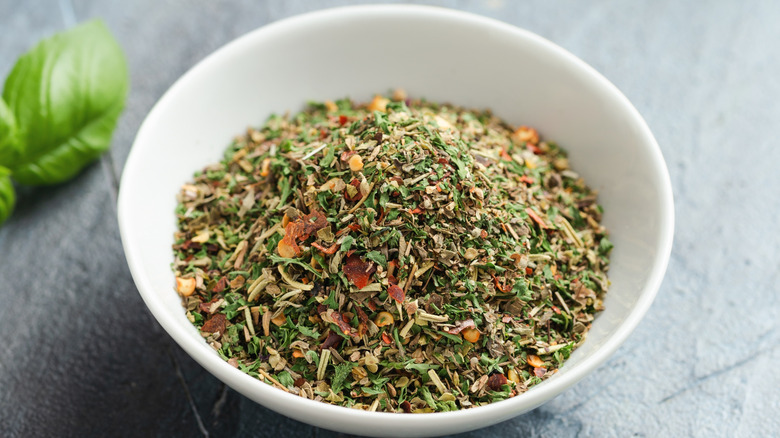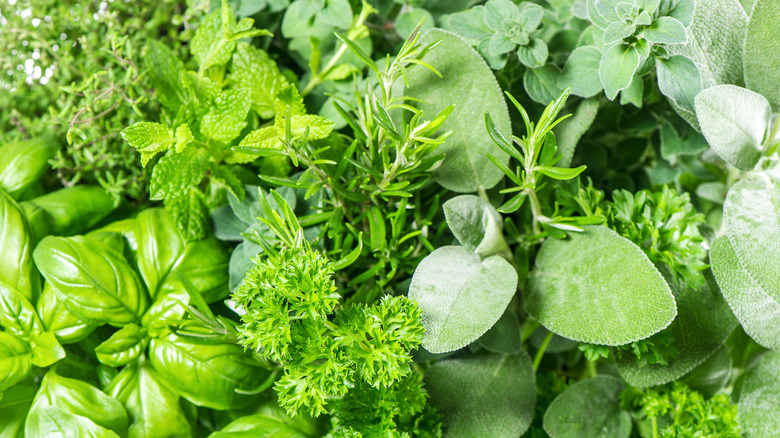Why Italian Seasoning Isn't A Thing In Italy (And Where It Actually Came From)
Italian seasoning is a staple in American kitchens. Typically made from a blend of dried basil, thyme, rosemary, marjoram, and oregano, this herb mix is versatile, widely available, and downright delicious. It complements a range of foods from pastas to proteins and can elevate the flavor of just about any dish in a pinch. However, there is no fixed recipe for Italian seasoning. It's a vague term that leaves room for interpretation and results in a wide variety of blends in the spice aisle at the supermarket.
While many Italian recipes call for some variation of the herbs present in the seasoning blend in traditional recipes, you'd be hard-pressed to find a bottle labelled "Italian seasoning" in any pantries or grocery stores in Italy. One reason is that you're far more likely to see fresh herbs in an Italian kitchen than dried. Compared to American-Italian cooking, traditional Italian cooking relies much more on fresh, high-quality produce. Just-cut herbs offer a brighter and less concentrated flavor than their dried counterparts, and allow the base flavors of the produce and proteins to shine. Beyond that, not every recipe calls for a smorgasbord of dried herbs in equal measurements. So, although Italian seasoning is a quick way of imparting a bunch of flavors at once, too many together can muddle the beauty of each herb and the individual flavors they bring.
The origins of bottled Italian seasoning
If you were to take a stab at guessing where Italian seasoning originates from, you'd probably say Italy, right? And you'd be technically correct, though it's a dash more vague than that. It's difficult for historians to pinpoint a specific inception of Italian seasoning. However, it is known that the ancient Romans and other civilizations living in the region we know today as Italy were using herbs, both dried and fresh, in their cooking. It is also certain that they primarily used the herbs naturally growing around them, and many of those herbs are what make up our modern rendition of Italian seasoning. Rosemary, oregano, marjoram, and thyme are all native to the Mediterranean. Basil, however, is actually an herb native to Asia and India and was likely introduced to the region via the spice trade.
It's certainly possible that ancient Romans were using blends of herbs similar to those in the dried Italian seasoning you might have in your pantry now, but it wasn't the bottled, ready-made version. That commercialized blend is more than likely an American invention and was at the very least popularized in American kitchens. So, while we may never know the exact who, when, or why of the Italian seasoning blend that we use so often today, we can at least trace it back to its authentic inspiration.

